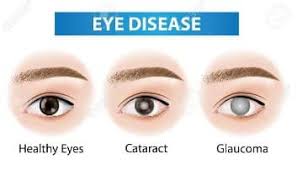Health for over forty years.
According to internist at Piedmont Hospital in Atlanta, Dr. Fryhofer, here are seven ways to stay healthier when you approach or turn 40:
Keep your eyes open for vision problems
He suggested wearing sunglasses to prevent further damage. “Too much sun exposure can increase cataracts, so sunglasses are a good idea,” Fryhofer said. “Make sure they have UV-A [and] UV-B protection.”
A diet rich in fruits and vegetables, which are packed with antioxidants, vitamins and minerals, can delay the loss of vision, according to Heather Mangieri, a spokeswoman for the Academy of Nutrition and Dietetics.
The leading cause of blindness in the elderly is a condition known as macular degeneration. It affects 9.1 million Americans over the age of 40. “Macular degeneration tends to be genetic, but we can use nutrition, a diet rich in lycopene (found in red fruits and vegetables) and antioxidants to delay vision loss,” Mangier said.
Know your numbers.
The age of 40 is a good time to check your blood pressure figures, cholesterol levels, blood sugar, and body weight. “People need to know what their cholesterol level is, and if they haven’t done it before age 40, they should.”
When you visit a pharmacy, take some time to measure your blood pressure and visit your doctor for a simple blood sugar test, he suggested. Knowing these numbers will help you and your doctor identify risk factors for potentially hidden diseases.
For example, people with higher blood pressure have a higher risk of heart disease, stroke and kidney failure, Zoghbi said.
Explore your family history
During your fifth decade, it’s time to take a close look at your family tree to find out if your genetics increase your risks of diseases like cancer or heart disease. According to Dt. Fryhofer, “Once you get to 40, when things go wrong, you have to think about the C-word and that’s cancer, because you’re not a kid anymore. Now is a good time to make sure you understand your family’s history.”
For example, people with a family history of colon cancer may want to have a colonoscopy at age 40, rather than wait until age 50, Fryhofer said.
The same goes for heart disease: A calcium test can help determine if your arteries are starting to harden and if you need major lifestyle changes or medications. “People manage a lot until they hit 40, but then when you get to 40, it has to be a little bit about you. It can’t just be caring about others,” he said.
Exercise every day.
Starting at age 40, we lose about 1 percent of muscle mass per year.
So people can benefit from incorporating weight-bearing exercises, along with cardiovascular exercises, into a weekly physical activity plan, Mangier said. “Even if you use cans of soup to do some bicep push-ups, it doesn’t have to be in a gym, it just has to be some kind of resistance training,” Mangier said.
As we age, we also become less flexible. Mangier suggested adding yoga or Pilates, which can help improve flexibility, core strength, balance and range of motion. “If we can maintain our muscle mass and maintain our strength, then as we age, we can continue to do the things we enjoy doing.” Joining a sports club or playing some organized sport is an excellent idea not only from a health point of view, but also because it is also a way to expand your circle of friends and, in the long run, can provide opportunities for tabligh.
Fiber is your friend
The days of gorging without gaining weight are over. And as your metabolism slows down around age 40, eating fewer calories can improve your health. But you also need to make sure you get the right amount of fiber and fluids, Mangieri said.
“We want to make sure that the calories that are decreasing come from things like sweets, but we keep those high-fiber foods in the diet and also make sure we meet our fluid needs. That’s really important,” Mangieri said. “Make sure our daily eating plan is full of nutrient-rich foods, such as lean protein, fruits and vegetables, low-fat dairy products, and whole grains.
Those elements are important at all stages of life, but as we age, we want to make sure we keep those nutrient-rich foods even though our caloric needs are lower,” Mangieri said.
Consider the general panorama of your lifestyle
Dr. Elizabeth Jackson, an assistant professor at the University of Michigan, emphasized the difference that an overall healthy lifestyle can have in preventing heart attacks and strokes.
For cardiovascular events, “we know that the risk increases with age and you can’t get younger.” There is no cure for getting older,” Jackson said.
But losing the michelins around the waist could help avoid the need to buy plush ropa, but also reduce the risk of heart disease, diabetes and vascular disease. “When you think about lifestyle modifications , there’s a lot for your money in all the different factors,” Jackson said.
Doing regular physical fitness, reducing stress levels, maintaining a healthy weight and eating a diet rich in fruits, vegetables and polyunsaturated fats “help keep blood vessels healthy,” Jackson said. And that keeps our heart healthy, that keeps our brain healthy, and it really helps us prevent your body weight from increasing. An investment in a healthy lifestyle will pay off in every decade to come,” he said.



